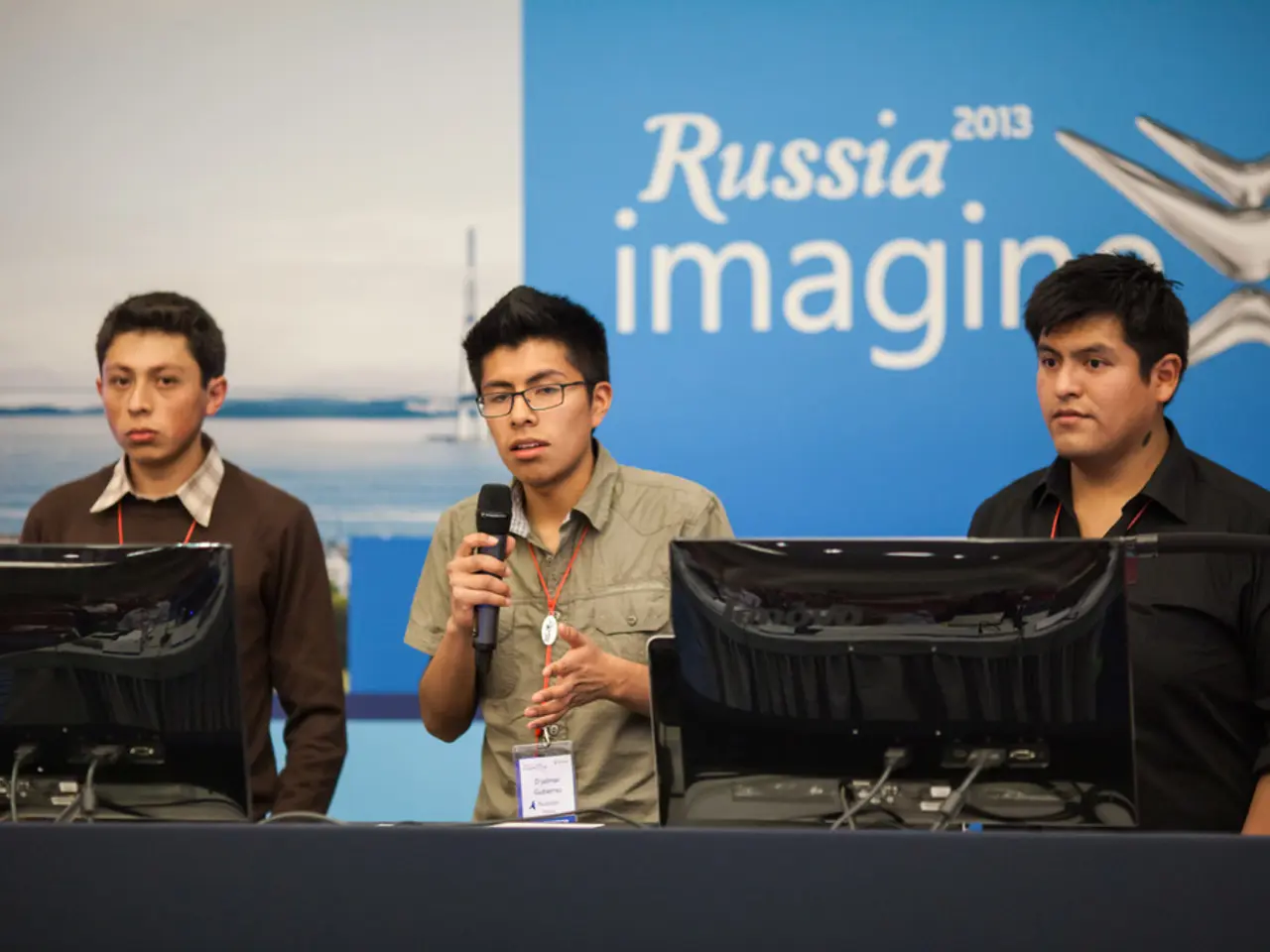Unity and Inclusion Advocated by Minister Malatsi in South Africa's AI Strategy
South Africa has taken a significant step towards harnessing the power of Artificial Intelligence (AI) for national development with the unveiling of its Draft National AI Policy this year. The policy, published by the Department of Communications and Digital Technologies, aims to position South Africa as a leader in AI innovation while ensuring ethical, inclusive, and responsible use of AI.
At the heart of the policy is the National Artificial Intelligence Policy Framework, which emphasizes ethical AI systems, talent development, and leveraging AI to address national developmental challenges. The framework provides guiding principles on data governance, transparency, ethics, and fair competition, serving as the foundation for future AI legislation in the country.
In terms of AI education integration, South Africa's strategy focuses on talent development. This includes integrating AI skills into education and training initiatives to build a capable workforce that can support sustainable AI growth and innovation. While specific curricular reforms are not detailed, the emphasis on education aligns with broader government goals of digital empowerment and upskilling across sectors.
Regarding partnerships for digital empowerment, South Africa actively engages in regional and international collaboration. It has endorsed the Africa Declaration on Artificial Intelligence (2025), highlighting ethical, inclusive AI that respects data sovereignty and cultural contexts across Africa. Under South Africa’s 2024–2025 G20 Presidency, priorities included digital inclusion, ethical AI, and building digital public infrastructure to ensure equitable AI benefits. These efforts reflect strong governmental support for collaboration with public and private stakeholders, including tech enterprises and multilateral organizations, to foster AI-driven economic development and digital empowerment.
Solly Malatsi, Minister of Communications and Digital Technologies, has been a driving force behind South Africa's AI development strategy. Malatsi believes that AI systems should reflect local realities and drive inclusive growth. He has emphasized the importance of a unified approach to AI development, cautioning against unchecked deployment of AI, which could automate bias, reinforce inequality, and erode trust.
Key initiatives of the Draft National AI Policy include expanding digital infrastructure, integrating AI education into schools, and supporting local startups and institutions like the AI Institute of South Africa. Malatsi has praised AI's ability to fuel economic growth and improve service delivery, citing examples such as its use by the South African Revenue Service (SARS) to detect fraud and prevent illicit tax refunds, protecting billions in public funds.
Malatsi has also commended Google's efforts to localize AI for African languages, a move that aligns with South Africa's commitment to ensuring AI technologies serve humanity and contribute to a more equitable society. He has urged continued partnership with academia and industry leaders to build digital skills and emphasized the importance of developing "South African AI for South Africa" - technology trained on local data and tailored to national priorities such as food security, public health, and job creation.
In summary, South Africa's AI approach reflects a progressive stance integrating ethical governance, education, and cross-sector partnerships to harness AI responsibly for national and regional development. The Draft National AI Policy serves as a stepping stone towards a future where AI is used to drive inclusive growth and digital empowerment, ensuring that the promise of AI reaches everyone, not just the few, to avoid leaving anyone behind in the AI revolution.
[1] Department of Communications and Digital Technologies. (2024). National Artificial Intelligence Policy Framework. Retrieved from https://www.gov.za/documents/national-artificial-intelligence-policy-framework [2] Government of South Africa. (2025). Africa Declaration on Artificial Intelligence. Retrieved from https://www.gov.za/documents/africa-declaration-artificial-intelligence [3] Government of South Africa. (2024). National Artificial Intelligence Policy: A Foundation for Future Legislation. Retrieved from https://www.gov.za/speeches/minister-communications-and-digital-technologies-solly-malatsi-delivers-keynote-address-google-s-flagship-ai-action-event-2024-09-15 [4] Government of South Africa. (2024). AI Education Integration: A Key Pillar for Digital Empowerment. Retrieved from https://www.gov.za/news/ai-education-integration-key-pillar-digital-empowerment [5] Government of South Africa. (2024). Partnerships for Digital Empowerment: South Africa's Strategy for Regional Collaboration. Retrieved from https://www.gov.za/news/partnerships-digital-empowerment-south-africas-strategy-regional-collaboration
- South Africa's Draft National AI Policy emphasizes the need for AI systems to reflect local realities and drive inclusive growth, as highlighted by Solly Malatsi, Minister of Communications and Digital Technologies.
- To ensure ethical, inclusive, and responsible AI development, South Africa's policy aims to integrate AI into healthcare, education, and infrastructure projects, such as expanding digital infrastructure and integrating AI education into schools.
- Recognizing the importance of technology in fostering economic growth, South Africa supports local startups and institutions like the AI Institute of South Africa, as outlined in the Draft National AI Policy.
- South Africa also encourages collaboration with public and private stakeholders, including tech enterprises and multilateral organizations, to build digital skills and ensure AI technologies respect data sovereignty and cultural contexts across Africa, as seen in partnerships for digital empowerment and the Africa Declaration on Artificial Intelligence.




